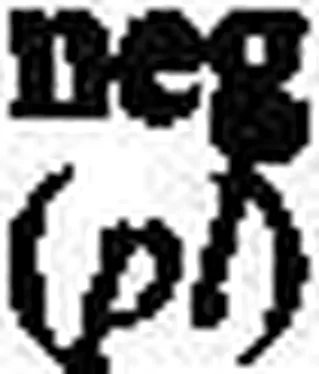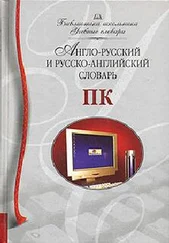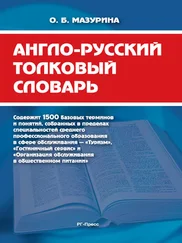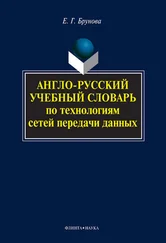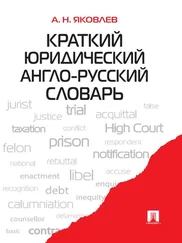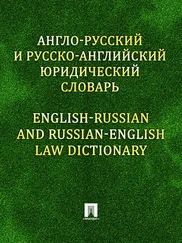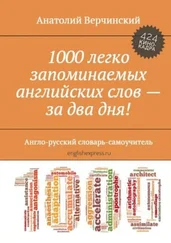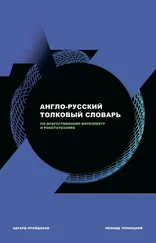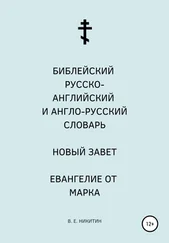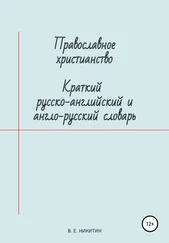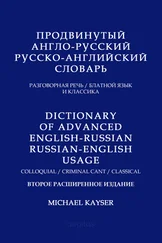Е.А.М.Уилсон - Англо-русский учебный словарь 1984
Здесь есть возможность читать онлайн «Е.А.М.Уилсон - Англо-русский учебный словарь 1984» весь текст электронной книги совершенно бесплатно (целиком полную версию без сокращений). В некоторых случаях можно слушать аудио, скачать через торрент в формате fb2 и присутствует краткое содержание. Год выпуска: 0101, Жанр: Старинная литература, на русском языке. Описание произведения, (предисловие) а так же отзывы посетителей доступны на портале библиотеки ЛибКат.
- Название:Англо-русский учебный словарь 1984
- Автор:
- Жанр:
- Год:0101
- ISBN:нет данных
- Рейтинг книги:4 / 5. Голосов: 2
-
Избранное:Добавить в избранное
- Отзывы:
-
Ваша оценка:
- 80
- 1
- 2
- 3
- 4
- 5
Англо-русский учебный словарь 1984: краткое содержание, описание и аннотация
Предлагаем к чтению аннотацию, описание, краткое содержание или предисловие (зависит от того, что написал сам автор книги «Англо-русский учебный словарь 1984»). Если вы не нашли необходимую информацию о книге — напишите в комментариях, мы постараемся отыскать её.
Англо-русский учебный словарь 1984 — читать онлайн бесплатно полную книгу (весь текст) целиком
Ниже представлен текст книги, разбитый по страницам. Система сохранения места последней прочитанной страницы, позволяет с удобством читать онлайн бесплатно книгу «Англо-русский учебный словарь 1984», без необходимости каждый раз заново искать на чём Вы остановились. Поставьте закладку, и сможете в любой момент перейти на страницу, на которой закончили чтение.
Интервал:
Закладка:
USE OF THE HYPHEN, AND OF THE HYPHEN PLUS VERTICAL STROKE
In showing the perfective aspects of Russian verbs, a hyphen, when preceded by a prefix, represents the full Russian perfective, thus: писать (на-) (= написать).
With Russian words divided by a vertical stroke, the hyphen represents that part of the word which is to the left of the stroke, thus: получ|ать (-йть) (= получить); комсомолец, /-ка (= комсомолка).
A stress mark over the hyphen indicates shift of stress to the syllable immediately preceding the vertical stroke, thus: вставлять ( :ить) (= вставить); выполнять (-полнить) (= выполнить); проверить ( :ить) (= проверить).
USE OF BRACKETS
If a word in either English or Russian is enclosed in round brackets but is not in italics, it means that that word may be omitted without detriment to the sense of the phrase.
Round brackets are used to enclose the aspectival forms of Russian verbs. Russian italics are not used.
Round brackets in conjunction with (English) italics are used:
to enclose indicators of meaning;
to enclose abbreviated grammatical indications; e.g. to draw attention to a Russian singular used to translate an English plural or vice versa: variations In price изменение (sing) в ценах (pi); or to note the Russian use of an impersonal verb: I feel sick меня тошнит (impers) ; or to note the use of a Russian adverb to translate an English noun or adjective: in the vicinity of the station поблизости от/вблизи (advs) вокзала; etc.
Square brackets in conjunction with (English) italics are used for brief editorial comment, e.g. to enlarge on a point of grammar, or a construction. They are also used with an
NB to draw attention to an unexpected usage in Russian, e.g. to bake a lot of pastries напечь пирожков [NB use of prefix]; the market is buoyant торговля оживилась [NB tense].
INDICATING ALTERNATIVES: THE DIAGONAL STROKE, THE COMMA AND "OR"
The diagonal stroke is used:
to show different combinations which may be used with the headword and in the corresponding translations, thus: to get an answer/permission/a prize/recognition/a scolding получить ответ/ разрешение/ приз/ признание/ выговор;
to show possible alternatives within a phrase in one language only, thus: the casting/ deciding vote решающий голос; various forms of transport разные /различные виды транспорта.
A comma is used:
when two separate translations are offered for one English phrase, thus: in a manner of speaking в какой-то степени, можно сказать;
when English combinations separated by a diagonal stroke require two different Russian translations, thus: vegetable soup/salad овощной суп, салат из овощей.
Both the diagonal stroke and the comma may be needed when translating more than two English combinations, thus: a violent blow/attack of fever/explosion сильный удар/ приступ лихорадки, мощный взрыв.
"Or": when an alternative translation is shown within an alternative, the "sub-alternative" is indicated by the English word "or" written in italics, thus: I'm going to visit my sister я собираюсь ( to drop in) зайти к сестре /(to stay) навестить сестру or погостить у сестры; bad manners/news плохие or дурные манеры/вести.
GRAMMAR: TREATMENT OF NOUNS
A knowledge of basic grammar and permutations of vowels is assumed. Gender is shown only for common nouns, and for masculine nouns ending in the soft sign, or in a non-mascu- line termination, thus:
левша ( m and f) дождь (m) слуга (m) домишко (m).
Indeclinable nouns are noted and can be assumed to be neuter, unless a gender is given. Collective nouns are noted, as also are nouns which have no singular or no plural, thus: кофе (m, indect) кино ( indect) картофель (m, collect) щипцы (no sing) обувь (no pi).
These indications are given every time а поиц appears as a general translation of the headword, but not always otherwise, except for (collect).
GRAMMAR: TREATMENT OF VERBS
The imperfective aspect is treated as the basic form of all verbs with its perfective form shown in round brackets. The following are the abbreviations used to give aspectival information:
писать (на-) (= pf написать); сверкать (semel -нуть) (= semelfactive pf сверкнуть);
when the verb is for any reason first quoted in its perfective form, the entry runs: получ|йть (impf -ать);
where there is no established corresponding aspect, the verbs are shown thus: рыдать (impf); стерпеть (pf);
a verb which is used for both aspects is shown thus: эвакуировать (impf and pf);
when a Russian verb exists in both aspects, but translates an English usage in only one of its aspects, it is shown thus: believe vi верить (only in impf), to talk somebody out of doing something отговорить кого-л от чего-л (only in pf) or thus: to canvass for votes вести предвыборную кампанию (usu impf), to bid somebody good morning пожелать кому-л доброго утра (usu pf) (= usually (im)perfective in this usage).
Aspectival information is given only in verb entries and only when the verb is offered as a general translation of the headword, or as a translation of an English example given in the infinitive form. It is usually given only once in an entry and is not repeated for the reflexive form of the verb.
In a long entry, where several compounds of a verb may appear, aspectival information is normally shown only for the first appearance of the compound. The student can then deduce the aspectival forms of any further of these particular compounds which may appear in that entry.
VERBS OF MOTION WITH TWO IMPERFECT!VES
The terms "indeterminate" and "determinate" are used to distinguish the two imperfectives, thus: ходить ( indet impf of идти; по-), ёхать (det impf of ездить; no-) (= pfs походить and поехать).
Such verbs are fully illustrated to bring out their special meanings, especially the force of the prefix no- in the perfective forms.
The inchoative sense of the perfective of the determinate form is shown in examples, e.g. it began to rain пошёл дождь. It is shown how, in order to translate the determinate verb in a true perfective sense, the perfective of one of its compounds must be used, e.g. he's gone off to bathe/to the theatre он пошёл купаться, он ушёл в театр (= "he set off to bathe", but "he has gone to the theatre").
The perfective of the indeterminate form is illustrated as meaning to do something for a while, without particular purpose or direction. The student will find throughout the dictionary examples showing how perfective verbs, with the prefix no- used in this same sense, can be formed from many imperfective verbs (though they are not held to be aspectivally related), e.g. to flirt a little пофлиртовать (pf).
Читать дальшеИнтервал:
Закладка:
Похожие книги на «Англо-русский учебный словарь 1984»
Представляем Вашему вниманию похожие книги на «Англо-русский учебный словарь 1984» списком для выбора. Мы отобрали схожую по названию и смыслу литературу в надежде предоставить читателям больше вариантов отыскать новые, интересные, ещё непрочитанные произведения.
Обсуждение, отзывы о книге «Англо-русский учебный словарь 1984» и просто собственные мнения читателей. Оставьте ваши комментарии, напишите, что Вы думаете о произведении, его смысле или главных героях. Укажите что конкретно понравилось, а что нет, и почему Вы так считаете.
